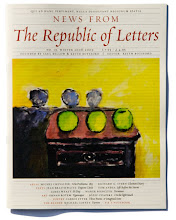The Italian bi-monthly LIMES, edited by Lucio Carracciolo, is perhaps the one absolutely indispensable geopolitical magazine in existence: well-informed, independent, clearly written by a world-wide array of expert scholars, and accompanied by excellent maps, it has -- despite its substantial sale -- only one serious defect: it is written in Italian, meaning that it is not as widely read as it deserves to be, in western intelligence circles.
Its current issue, on Afghanistan, raises some very interesting questions. I am quite sure that our 'authorities' know all about such questions; the problem is that we the citizens and voters, probably do not. Here, as a public service, I offer just one of many snippets in the issue: on the parlous question of Osama bin Laden.
To be completely transparent, let me state that I have been among the 'correspondents' of LIMES for at least the past twenty years.
The extract below is from an article by Margherita Paolini about Pakaf ( Pakistan/Afghanistan), in the author's words, the 'key' to the whole Afghan problem.
"The declared objective of the United States is, as a pre-condition for their political re-integration, to obtain from the Taliban a definitive guarantee that they have broken off their relations with Al-Qaeda. If this refers to the Zawahiri-bin Laden group of the second half of the 1990s, progressively reprived of its leadership from 2002 on and deprived of its political audience by decision of the ISI [the Pakistani intelligence agency] after 2004, there would be no problem. That Al-Qaeda belongs to a remote past. Just this last September [2009] Mullah Omar declared that the Taliban was willing to do so, and that the only remaining issue in its negotiations with the United States was the date by which foreign troops would leave the country, as in Iraq (the preferred model for Pakistan).
"If on the other hand the United States refers to the terrorist activities of other groups operating under the Al-Qaeda banner -- such as Paklistani groups -- and these other groups may not even be named, then the problem remains. The danger of such groups and their infiltration into the Pakistani government was clearly shown in the David Coleman Headley, alias Daud Gilani, affair. The son of a diplomat and at home in the right circles in the United States, Gilani was able to plan in detail the acknowledged attacks in Mumbai.
"In this context, the American challenge to terrorism, with its current intelligence strategy amd without an unconditional structural collaboration with the Pakistani government and the ISI, risk becoming as dangerous a pantomime as it was under Bush.
"The question as to whether Osama bin Laden is dead or alive is another oddity. It's not so much a matter of the videos and tape-recordings themselves, most of them quite obviously fake, but of their content, which in no way corresponds to Osama's known ideology: especially in regard to keeping the umma unified against its enemies, the United States, Israel and those nations in the Islamic world who betray Islamic principles. It was always a bin Laden priority not to exacerbate or broaden the religious divide between Sunni and Shia Islam. The exact opposite is what happen in Iraq with Abu Musab al-Zarkawi, whose true patrons are to be found among Sunni intengralist ideologues who consider Shiites heretics, a stance which coincided perfectly with Pakistani jihadism.
"Bin Laden was most probably liquidated in December-January 2001-2002 when Osama was residing in the secret hospital of the Binori madrasi in Karachi. The appropriate person, whom bin Laden trusted, was to hand: Omar Said Sheikh, who co-ordinated relations between Osama and the ISI (and who also turns up in the Bhutto assassination). This Omar was cited by the FBI as the man responsible for the killing of the American journalist Pearl; he was tried in Pakistan and condemned to death to take him out of American hands. The death-sentence was never carried out. In fact, Omar Said, safe in a military prison in Rawalpindi, was able to follow the Mumbai attacks and sought to precipitate a crisis between India and Pakistan with counterfeit telephone calls (using British sim cards) to isolate both the Pakistani president, Zardari and the Indian Foreign Minister Mukherjee. His objective, quickly frustrated, was to transfer Pakistani troops from the tribal areas to the Indian frontier.
"Sooner or later, Omar said will be freed if the lead terrorist in the trial of the Al-Qaeda Seven, the Pakistani Khalid Sheikh Mohammed, admits to being himself responsible for the murder of Pearl."
Lahti
2 years ago













No comments:
Post a Comment